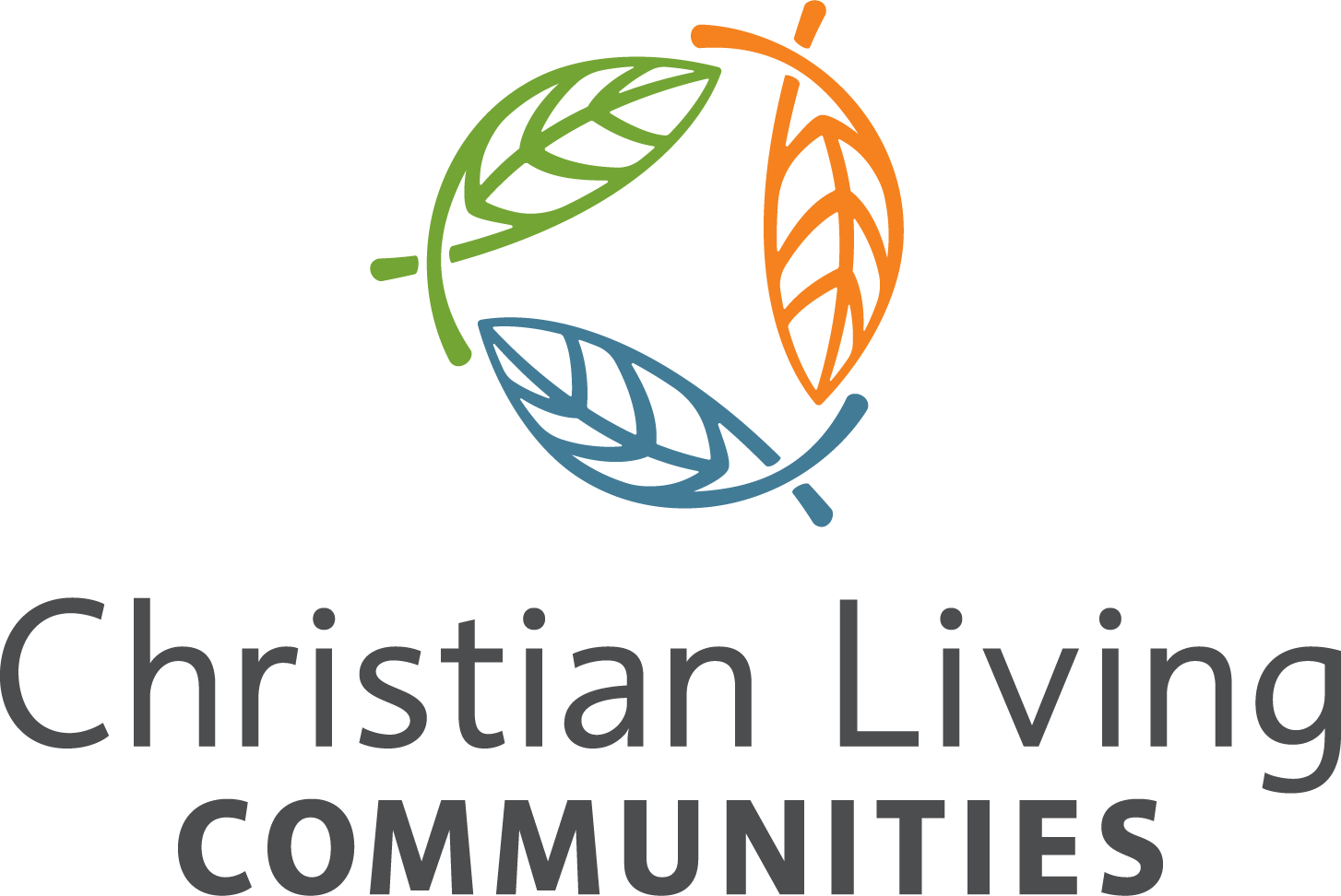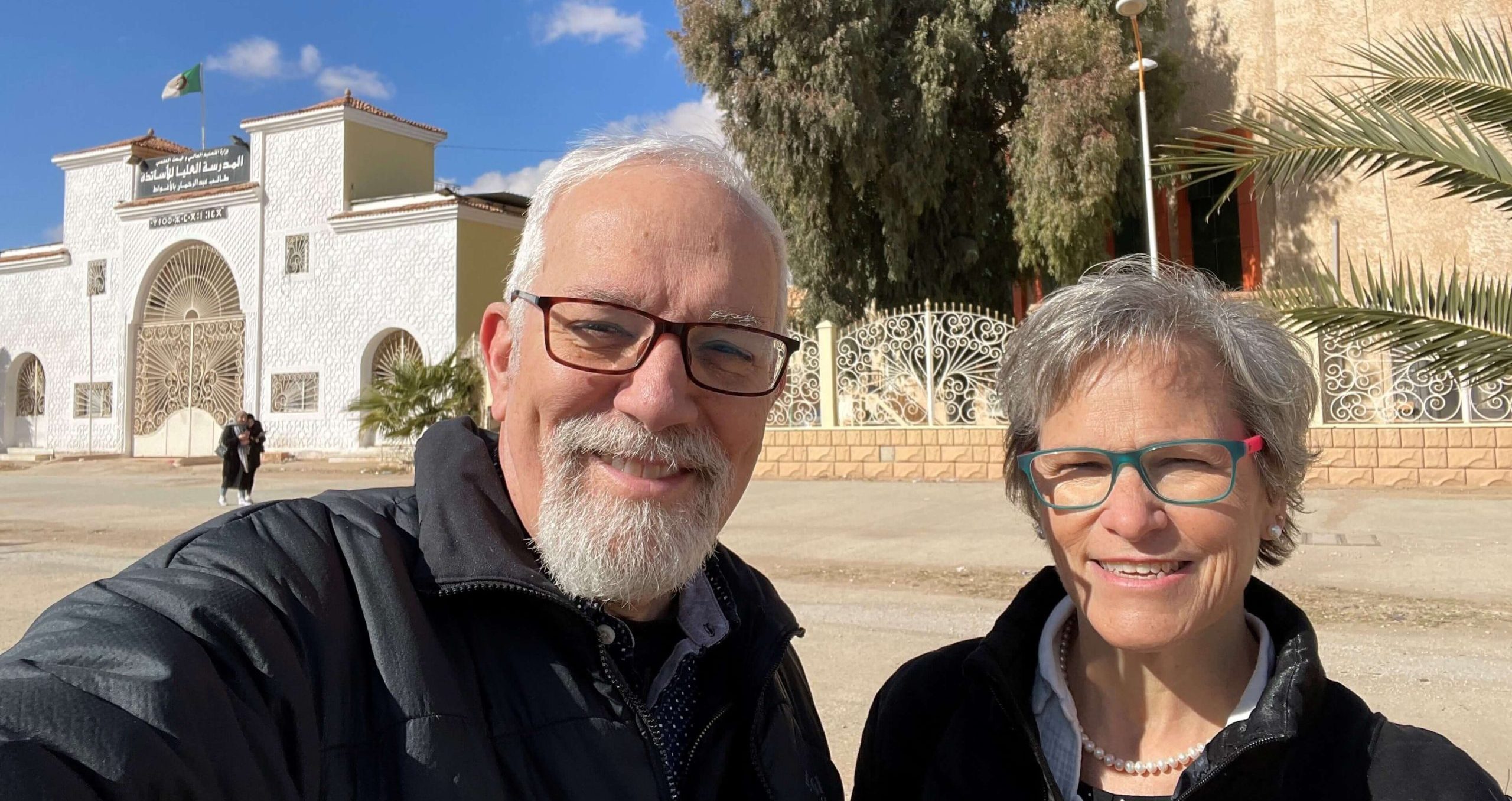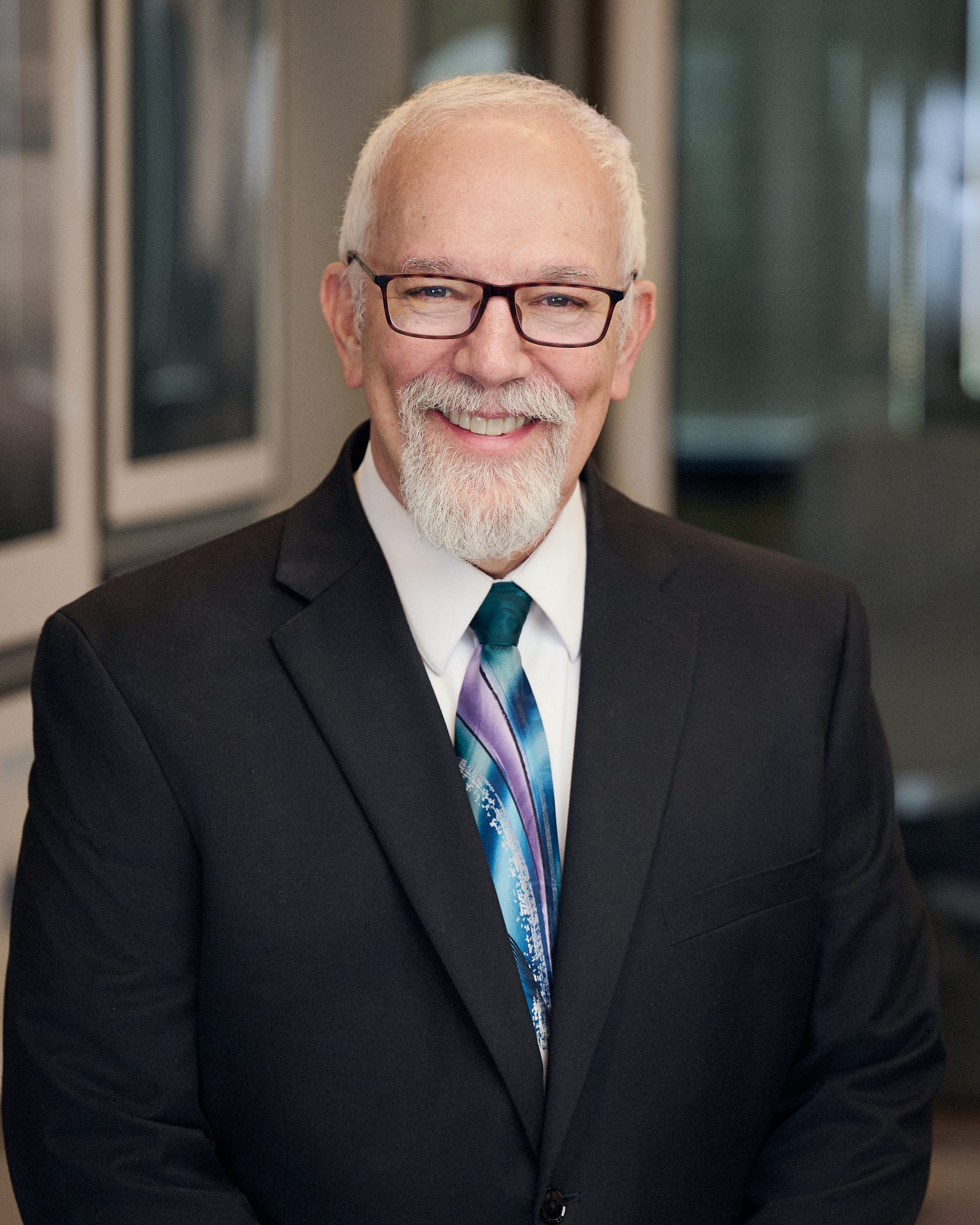By: Jim Kok, Executive Director of Chaplain Services for Christian Living Communities
Greetings from Algeria! You may be asking yourself why in the world is Chaplain Jim in Algeria? I'm here with my wife, Carol, who is teaching English. She was accepted into the English Language Fellows program through the U.S. State Department. I am only here for a few months, but already I have learned so much and I want to share these newfound perspectives with my family back at CLC.
Featured on YourHub
Following his return from Algeria, Chaplain Jim was interviewed for a piece published on The Denver Posts' YourHub, recounting his experience and how it will influence his work going forward.
I'll be writing some short reflections, which we’re calling Fresh Perspectives Out of Algeria. Finding myself in a completely different culture has been fascinating. In these letters, I will share somethings new that I have learned, as well as how these lessons and examples relate to our vision, mission and values at CLC. I can't wait to take you on this journey with me! We'll post a new letter every couple of weeks - simply click on the bar(s) below to read each letter.
Until next time, Ma’a salama (“May you go in peace”).
Letter #1: Greetings from Algeria!
February 20, 2023
Greetings from Algeria! As I begin sharing some of my observations, I want you to know a little something about Algeria.
Algeria is part of what is known as the Maghreb, a region of North Africa that also includes Morocco, Tunisia, Libya, and Mauritania. These are majority Muslim countries; in their recent history they were all colonized by either Spain, France, or Italy.
Algeria is the largest country in Africa, covering nearly a million square miles, with a population of over 44 million. It has a long Mediterranean coastline, but most of the country is comprised of the Sahara Desert. The largest population areas are along the coast, in cities such as Algiers (the capitol) and Oran, but of course there are cities, villages and towns throughout the country.
My wife and I are living in the city of Laghouat, about 400 kilometers (250 miles) south of Algiers. With a population of about 180,000, it is one of the larger cities in this region. The name Laghouat means “oases” and the city is built around an oasis on the northern edge of the Sahara Desert.
As to why we are here: my wife, Carol, has been teaching English to international students for the past ten years, and has always dreamed of teaching internationally herself. Several years ago, pre-pandemic, she applied for and was accepted into the English Language Fellows program through the U.S. State Department. This program has been placing English teachers in universities throughout the world for the last 60 years, as a part of their diplomatic outreach. Last summer she was offered a position at the École Normale Supérieure de Laghouat, teaching English to future teachers. I was blessed to be able to join her for a part of her term here in Algeria.
As part of my continuing work for CLC, I’ll be writing some short reflections, which we’re calling Fresh Perspectives out of Algeria. Finding myself in a completely different culture has been fascinating, and I hope to share some of what I’m learning with you.
Until next time, Ma’a salama (“May you go in peace”).
Chaplain Jim Kok
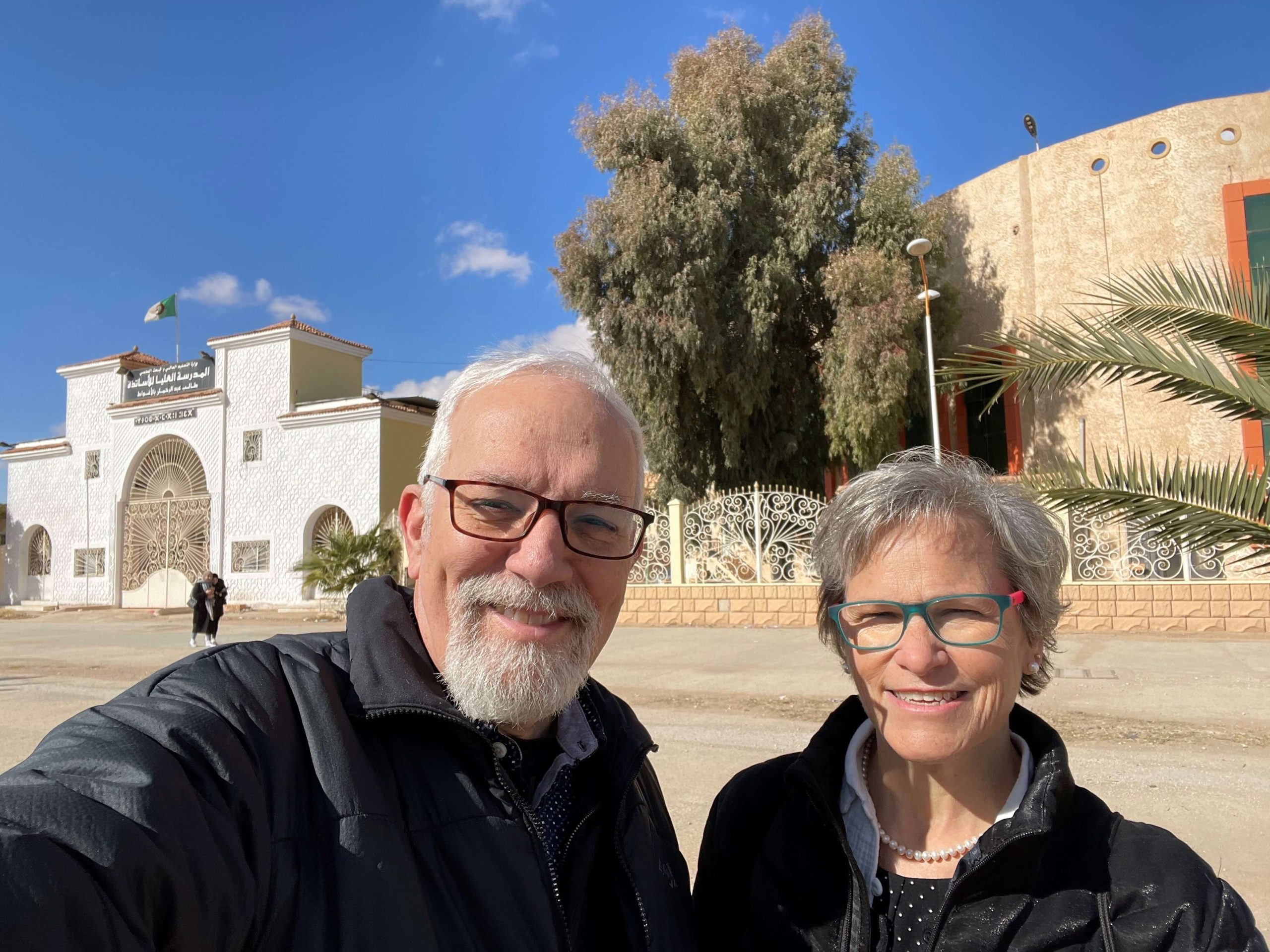
Letter #2: Thoughts on Community
February 27, 2023
I’ve now been here with my wife for a few weeks, and I want to begin recording some of my impressions and lessons learned. There is so much about this culture that is new and interesting for me.
We recently had been visiting with some friends at the Cultural Center here in Laghouat. This is a group of very talented musicians who get together almost every evening. More about that later. We walked home afterward with a young man who has taken us under his wing, helping us with an understanding of the culture here. More about him later, too.
When we arrived back at our apartment, I went inside while my wife continued talking with our friend. As they talked, a boy came from one of the other apartments, carrying some food that he was bringing to one of the neighbors. Before long, my wife was surprised to see the boy go back to his apartment, and return carrying a plate of food for her as well.
None of this seemed to surprise our friend, who happily joined us inside as we enjoyed some delicious soup along with some meat and vegetables. He indicated that this is the kind of thing that happens in most of the small neighborhoods here. Hospitality is very much ingrained in this culture. If you have something to share, you share it without hesitation, and without any expectations.
All of this got me thinking about community. A basic definition of the word is “a group of people living together who share some characteristic or interest.” But I think we all know that it means much more than that. When we live together in community, we contribute to the welfare of the community by bringing who we are, and by sharing our gifts with others for the good of the whole. That could be a plate of food, but it could also be our insight/expertise, our time, our leadership, our listening ear. All these things make the community stronger and our experience of living in community richer.
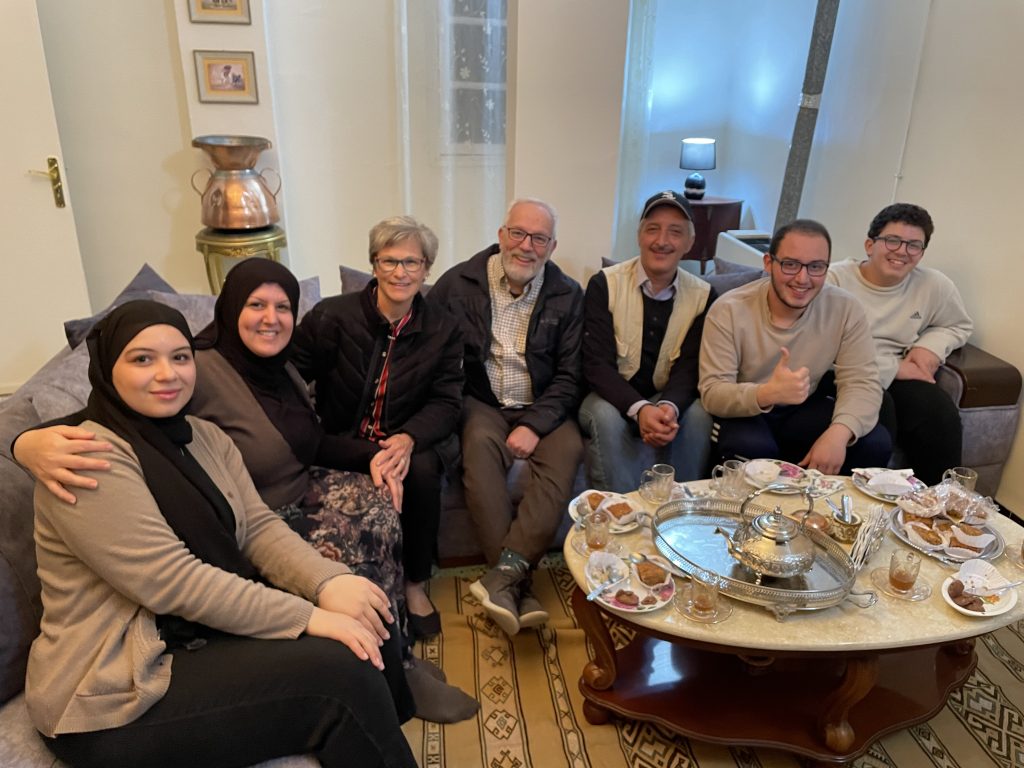
I’m blessed to be able to experience community here in Algeria in a different way, and I have so much to learn from these good people. More to come as I continue this journey.
Peace to all,
Chaplain Jim Kok
Letter #3: Sharing Food Together
March 6, 2023
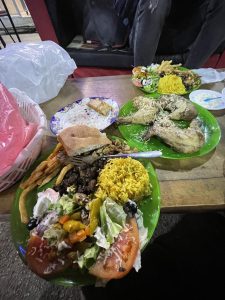 I was talking to someone back at CLC the other day, and she asked me, “What’s been your favorite thing to eat so far?” This part of North Africa is known for lamb and couscous, so those have definitely been part of my diet so far. Also a lot of vegetables such as carrots, tomatoes and turnips, etc. And some wonderful pastries and sweets. But the interesting thing is that I’m discovering that as wonderful as the food is, sitting down with someone to eat is more important than the food. What I mean is that the act of taking a meal together means friendship and chances to talk, and in the end whatever you’re eating is not the point.
I was talking to someone back at CLC the other day, and she asked me, “What’s been your favorite thing to eat so far?” This part of North Africa is known for lamb and couscous, so those have definitely been part of my diet so far. Also a lot of vegetables such as carrots, tomatoes and turnips, etc. And some wonderful pastries and sweets. But the interesting thing is that I’m discovering that as wonderful as the food is, sitting down with someone to eat is more important than the food. What I mean is that the act of taking a meal together means friendship and chances to talk, and in the end whatever you’re eating is not the point.
Recently I was talking to a couple of young men who were telling me that, in their culture, people are encouraged to put aside petty grievances against one another. In fact, they said that sometimes when people get into a squabble, one of them might say something like, “We’ve shared salt together,” reminding them both that they have shared food together at the table, and this bond of friendship is more important than their disagreements.
None of this means that there aren’t plenty of disagreements and people who hold grudges, of course, but I like the idea that the simple fact of sharing a meal together can remind us of what’s really important.
It’s good to be reminded that we’re created by God to live in relationship with one another, to find meaning from the connections we share, and that these things should be more important than whatever divides us.
Letter #4: Music and Legacy
March 13, 2023
Greetings from Algeria!
Before I arrived here to spend time with my wife, she had formed wonderful relationships with some great people. She’s good at that; in fact, that’s the biggest part of what she’s here to do. Thanks to her, I’ve been able to get to know people here pretty quickly, too.
Some of the people I’ve come to know and appreciate are musicians, specifically a group that gets together at the Benkeriw Cultural Center here in Laghouat almost every day in the late afternoon/early evening. A couple days a week, we try to drop in to listen, and occasionally to participate. We get to hear violin and guitar, as well as traditional instruments like the Oud – an Arabic lute - and the Qanun – a large zither-like instrument played on the lap. Both of these instruments, in some form, have been a part of Arabic music for well over a thousand years.
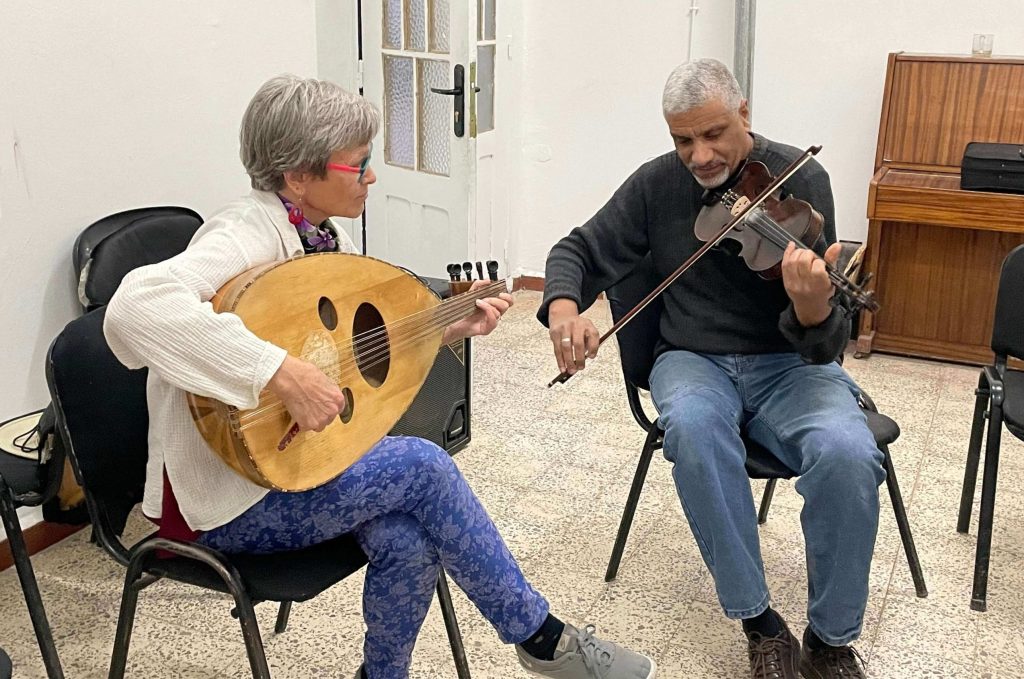
One of the interesting things we’ve discovered, among many, is that most of the music we hear doesn’t come from a written score or composition. Most of what these incredible musicians play has been passed down from one musician to another, sometimes within families, and sometimes for hundreds of years or more. And it is their passion for keeping the music alive that often drives these musicians to learn and to teach.
Observing this process reminds me that so much of what is beautiful and gives us life is passed on by those who have gone before us, and that we need to treasure these gifts. CLC is a great example of this, because what we enjoy in our communities today is due to the commitment and passion of those we call “Founders.” People like Earl Lammers and Dr. Gary Ritsema, both of whom played such an important role in who we are today, and both of whom passed into eternity in recent weeks. I’m so grateful for their legacy, and somehow I believe that we have the opportunity to take up where they left off, to continue to pass along the music, so to speak, and to leave our own legacy.
Letter #5: The Ham Radio Club
March 20, 2023
Greetings from Algeria!
One of the things that happens here, because Carol and I are not from here, is that we get noticed. The soccer-playing young boys just down the road try out their English, and their French, when they see us. We’re greeted by a chorus of “Hello” and “Bonjour” and “How are you?” every time we walk by the plaza where they are playing. Last week as we were walking through our neighborhood park, a couple of young men and women who were chatting together on a bench greeted us and wanted to know where we were from. In addition to trying out their English, they wanted to take some selfies with us!
We also get invited to many special events. Several weeks ago we went to a celebration of a ham radio club that is part of a local youth organization. They call themselves YOTA, Youngsters On The Air (7X3YOTA). This group had recently won second place in their regional competition (a region including all of Africa, Europe and Western Asia!) for number of contacts made. While we were there, they were contacting other operators from Scotland, Germany, even Canada. It was so much fun for us to hear these young men and women talk about their hopes and dreams for the future.
So much of what we’ve experienced here in Laghouat is about celebration: the ham radio club, the anniversary of a local Down Syndrome Association (Trisomie), a school robotics team winning a competition in Egypt (Delta Pro!), a new book by a local professor, Dr. Bediyar, on Andalusian history and culture, or children celebrating Asseggas Ameggaz -the Amazigh New Year. These people have created a culture of appreciation which celebrates the community and recognize accomplishments, often with food and music and certificates of appreciation given to all!
Sometimes we forget, in the midst of our very busy lives, that there is so much to celebrate. And perhaps we forget the people who make such a difference in our lives; forget to acknowledge the time and energy involved, or forget to say “thank you.” Our friends here in Laghouat have reminded me that real community means noticing that there are good people doing great things, and taking the time for joyful moments of celebration.
Letter #6: Authentic Community
March 22, 2023
Greetings from Algeria!
As I’m getting to ready to send off this letter, it is the first day of Ramadan here in Algeria, and throughout the Muslim world. We are excited to be here, to experience this most important time with our friends and neighbors. I look forward to writing about it as we understand more, so look for that in a future letter. As we will hear and say many times in the days to come, Ramadan Kareem!
The culture here is so rich and we have gained an appreciation for much of it. The people have been so warm and their hospitality so genuine. We feel welcomed as family almost everywhere we go. The city of Laghouat is small enough that many people are related to each other or have known each other for years. When we’re walking through town or taking a taxi, we often hear horns honking, and most often it’s one driver just saying hello to friends in another car or on the street. And it’s not at all unusual for someone just to stop and get out of the car to come and speak with their friends.
In one instance, Carol and I had gone to the offices of the national airline service, Air Algerie, but found it closed. As we stood outside the door wondering if they were closed for the day and who we might ask about it in our limited Arabic/French vocabulary, one of our friends from the cultural center walked up and asked if he could help. He happened to be driving by with his nephew and saw us there, stopped and helped us understand that the office was indeed closed for the day. We told him that he had been our “angel” that day, appearing just when we needed him. But we have met a lot of these “angels” along the way, people who were very happy to accompany us, translate for us, make sure we find our way, etc.
In this and so many other ways, we sense here in Laghouat a genuine caring not just for us but for one another. One of the truths about life and community that we’re discovering, or perhaps re-discovering, is that making our way in life is easier and more joyful when we have those around us who care, who step in when we need them, who walk with us to share the journey. That feels like authentic community to me, and a gift that we are privileged to give and receive in our own CLC communities!
Letter #7: Reflections on Ramadan
April 5, 2023
Greetings from Algeria!
Here in Algeria, and in the rest of the Muslim world, we are nearing the end of the second week of Ramadan. It’s hard to explain just how it feels to be here during this time, but I’ll try to give you a snapshot.
Ramadan is a shared community experience the likes of which my wife and I have seldom, if ever, been a part of. Our whole community has transitioned to quiet days and busy nights. While work continues daily, many businesses change their hours of operation, with shorter daylight hours and additional open hours after 9:00 p.m., after the final prayer for the day. It’s fascinating for us to see all manner of shops open at 1:00 a.m., and to see whole families enjoying time together in the local park at midnight.
Carol and I have been struck throughout these days with the fact that everyone around us is doing the same things, not just fasting, but enjoying the early morning and late evening meals before and after the fast begins, and following the tradition of reading through the entire Qur’an during the 30 days of Ramadan.
Our friends here in Algeria were really anticipating Ramadan, and you can feel a spirit of joy and celebration now that it has arrived. It’s easy to see that this is a favorite time of the year for the people around us. That may sound a little counterintuitive for a month that is focused on fasting, but it’s becoming clear to us that Ramadan is so much more. Spending time with family, sharing meals together, time with friends, practicing hospitality and generosity are all part of this shared experience.
We have been invited to participate in these celebrations, and welcomed as honored guests, despite the fact that we are not Muslim and are unfamiliar with the customs and traditions. The ancient practices of hospitality transcend even the differences in religion or culture, and it has been a privilege for us to experience it.
Religious obligation, represented in the fast and the meals and the Qur’an readings, are the reason for this holy month. As an outside observer, I’ve been blessed with an inside look, and it seems to me that the real joy of the season is found in caring for one another, in strengthening family ties and in renewal of relationships. This turns the observance of Ramadan into the celebration of Ramadan.
Letter #8: Reflections on Ramadan, Part 2
April 13, 2023
Greetings from Algeria!
In my last letter I reflected on our Ramadan experience here in Laghouat. As the holy month continues, I’m reflecting on what it feels like to be an outsider. I don’t mean that in a negative sense, just that there is so much about this culture and the traditions around celebrating Ramadan that are unknown to me. Much of it can be learned by observation, but since I don’t read or speak the language, there is still so much that I don’t understand.
A couple of thoughts have been in my mind these last few weeks, and some lessons that go along with these thoughts. The first thought is that I don’t know what I don’t know, and second thought is that the people here in Laghouat also don’t know what I don’t know.
The first lesson is that to live in a culture that is so foreign to my own cultural upbringing can be very disorienting. There are things that happen here that I cannot understand or explain. And when this is true, I don’t really even know what questions to ask, or what might be expected of me, for instance, if I get invited to an iftar fast-breaking meal. (Turns out that nothing is really expected except just to show up! Typical Algerian hospitality – but you get my point). It reminds me that when people from different cultures or who speak different languages come into our communities or churches or neighborhoods they may feel this sense of disorientation, not knowing what questions to ask.
That brings me to the second lesson. Although the people here are delightful and helpful and generally wonderful, most of the time they don’t have any idea of what I might need to know. And since I don’t know what to ask, I’m thinking that part of being a welcoming culture, beyond being warm and embracing, is getting to know people from different backgrounds, trying to understand what they don’t know so that I can make them feel a part of the community. As I understand it, this is the real meaning of hospitality, not just to welcome, but to make a space where people feel a sense of safety, and of belonging. And that means truly knowing people.
Perhaps there is one more lesson here: We’ve discovered here in Algeria that this sense of disorientation, not knowing what to ask, has been lightened by people who have opened their homes to us, embraced us, fed us, and let us know we are now part of their family. It’s been a great gift to us, and a reminder of the difference we can make in each other’s lives.
Letter #9: Our Sahara Adventure
April 20, 2023
Greetings from Algeria!
Because Algeria is such a large country, much of which is the Sahara Desert, Carol and I have heard from so many friends that to really see Algeria we needed to go to the desert. We got the chance to do that several weeks ago, because Carol was on Spring break from school. We were blessed to have our good friend Bilal along as our guide. After a long day’s drive south, we arrived in the city of Timimoun, known as the “Red Oasis” because of the brick red color of its architecture. We stayed in a camp where we climbed up some nearby rocks to watch the sunset and walked out into the desert at night to listen to the silence and marvel at the stars.
Along the way, we stopped to give water to some camels along the side of the highway, and explored the ruins of some old villages nearby. We experienced a very typical, and very crowded, weekly market in town, and got a little sand therapy, getting buried in the warm sand (up to the waist).
Robert Edison Fulton Jr. has said, “The desert tells a different story every time one ventures on it.” I was struck by these words as we spent time in the desert, watching the wind change the shape of the dunes. This is an ever-changing, often difficult environment, and those who live here have to be adaptable as well.
One of the challenges we have had in our time here is that we often show up to events and celebrations on time with a clear set of expectations as to what might happen. Invariably, we have been surprised at how fluid these situations are, not only as to what time they start but what they may turn out to be. This can be frustrating, but it has also led to some experiences that were surprising and often delightful. One might say that we are learning to go with the flow, to appreciate the shifting of the sands, to listen to the “different story” that is being told.
I’m reminded that our time-bound or calendar-bound lives may not leave enough room for this kind of spontaneity, and there may be different stories we need to hear.
Letter #10: Final Reflections
April 26, 2023
Greetings from Algeria!
As I finish my time here in Laghouat, Algeria, I have a lot to reflect on. It’s been a busy and fruitful four months, and I’ve been inspired by the relationships we’ve built and the culture we’ve learned so much about.
Looking back at the letters I’ve written, most of the lessons learned have to do with the people we have been blessed to meet and get to know. We have been warmly welcomed into people’s homes where we have been made to feel like family, fed delicious Algerian food and sweets, taught about the unique parts of the culture, and invited to stop by any time. These people have been very patient with our lack of Arabic language skills and answered all of our questions about why things are the way they are. We have been made to feel like honored guests at everything from musical programs to a celebration of young students memorizing Qur’an to an art gallery opening. In short, they have made us feel as if we have done them all a great honor just by being here. We now appear in countless photos and selfies because everyone wants a picture with us.
All of this has been a bit overwhelming, uncomfortable at times, perhaps more than we deserve, but at the same time has made this transition easy and filled us with gratitude.
My time here in Laghouat is quickly concluding. My wife will continue her work here until the end of July. Most difficult for me is coming home alone after the delightful time we have spent together, but I will also miss the good friends we have made. Our world has expanded in ways that I will continue to ponder, and I’d like to think that the people I have been blessed to know have also been blessed by my presence here.
I’m reminded that life is a series of encounters with others, each one an opportunity to give and receive. My most important lesson from this adventure has been to pay attention to these opportunities, be open to learning from them, accept what others might teach us, and give generously of what I have and who I am.
About the Author
Jim Kok serves as Executive Director of Chaplain Services for Christian Living Communities, and has been a part of the CLC family since 1986. He has held a number of positions within the organization, including Life Enrichment Director for both Clermont Park and Someren Glen Communities. He has been Chaplain for the organization since 1993. Chaplain Kok is a Board Certified Clinical Chaplain through the College of Pastoral Supervision and Psychotherapy, and is a licensed minister and endorsed Chaplain of the Christian Reformed Church in North America. He supervises the CLC Chaplain Team, and is responsible for all spiritual care and services for Christian Living Communities.
